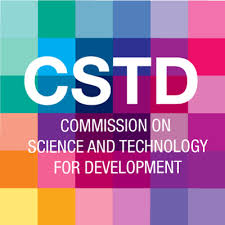Side event of Thailand: Advancing STI partnerships for sustainable development: experience from ASEAN
14 May 2019 13:00h - 13:45h
Event report
[Read more session reports and live updates from the 22nd Session of the Commission on Science and Technology for Development]
The side event was organised by the Permanent Mission of Thailand to the UN and other International Organisations in Geneva, and the National Science Technology and Innovation Policy Office of Thailand in collaboration with UNCTAD. The panellists showcased current ASEAN co-operation on Science and Technology Innovation (STI) for sustainable development, successful science, technology, and innovation (STI) projects in the ASEAN region and the ASEAN strategy on STI co-operation both within and beyond the region. The panellists also shared the experiences of ASEAN partners such as China and UNCTAD in strengthening STI co-operation in support of achieving the sustainable development goals (SDGs).
The session was moderated by Mr Sek Wannamethee (Ambassador and Permanent Representative, Permanent Mission of Thailand to the United Nations Office and other International Organizations in Geneva) who highlighted that ASEAN efforts are helping the region develop.
Ms Rowena Cristina L. Guevarra (Undersecretary for Research and Development, Department of Science and Technology, Philippines) presented the ASEAN Plan of Action on Science, Technology and Innovation (APASTI): ‘A Science, Technology and Innovation-enabled ASEAN, which is innovative, competitive, vibrant, sustainable, and economically integrate’.
Guevarra explained that within this framework, ASEAN countries have established a number of centres to share information and research outputs. She noted that in this way, the countries were able to reduce the duplication of efforts and save considerable amounts of resources, given that these facilities can be used by all ASEAN member states. She further said that the funding had also been reviewed and that the ASEAN STI Partnership Contribution helped to increase the number of public-private partnerships and has led to the creation of scholarships and youth competitiveness programmes.
Ms Kanchana Wanichkorn (Deputy Executive Director, Office of the National Higher Education, Science, Research and Innovation Policy Council, Ministry of Higher Education, Science, Research and Innovation) mentioned that ASEAN was formed in 1967 and that the Commission on Science and Technology was created just four years later. Since its creation, there have been five ASEAN Plans of Action on Science, Technology, and Innovation with 129 projects and related activities.
Wanichkorn explained that the investments of ASEAN countries in research development have greatly improved the research outputs over the last years. She also underlined that not only have the outputs tripled, but the quality of the research has improved and the application numbers for patents have risen by approximately 40% in the last three years. According to Wanichkorn, these promising developments show that the ASEAN region has the potential to be an innovation hub.
Further initiatives include the creation of an Economic Zone of Innovation and an Eastern Economic Corridor of Innovation. Wanichkorn said that ASEAN enterprises are going through important transformations and that they therefore need a good platform to support that transition.
Ms Shamika N. Sirimanne (Director, Division on Technology and Logistics (DTL), UNCTAD) emphasised the collaborative aspects of STI and highlighted that today, none of these policies can operate without partnerships. She further indicated that ASEAN needs to be at the frontier of new knowledge and mentioned their efforts in bringing all important actors together to share information and capacities among each other.
She shared some observations from her experience of living and working in Thailand. She said that the youth is hungry for innovation and is embracing new technologies. Moreover, she noted the successful strategies of upscaling locally-grown innovation and the broad community-level engagement in bringing science to the people. Sirimanne identified these as key drivers for STI in the country.
She reiterated UNCTAD’s commitment to work with ASEAN states and mentioned that UNCTAD has already started a series of training programmes under the leadership of the Philippines.
Mr Lei Wang (associated professor at the Institute of Remote Sensing and Digital Earth, Chinese Academy of Sciences (CAS)) spoke about the collaboration between China and ASEAN, given their identified common needs in terms of STI. Wang explained that China is implementing an innovation-driven development strategy in which innovation co-operation is a common need for China and ASEAN in dealing with global challenges and achieving the SDGs.
Wang introduced the China-ASEAN Science and Technology Partnership Program which as initiated in 2012 and involves key areas of co-operation, such as national science development strategies and agriculture, disaster prevention, and information technology. He explained that this programme has served regional economic development and livelihood improvement.
Other initiatives involve the creation of science and technology parks which can explore multi-level co-operation models such as policy exchange, enterprise integration, and park construction. The goal of these initiatives is to form a smooth China-ASEAN innovation industry chain. Wang further pointed out that ASEAN is an important partner for China’s Maritime Silk Road initiative and that China is willing to engage in comprehensive innovation co-operation to achieve the SDGs.
By Cedric Amon
Related event

22nd Session of the Commission on Science and Technology for Development
13 May 2019 16:30h - 17 May 2019 16:30h
Geneva, Switzerland
